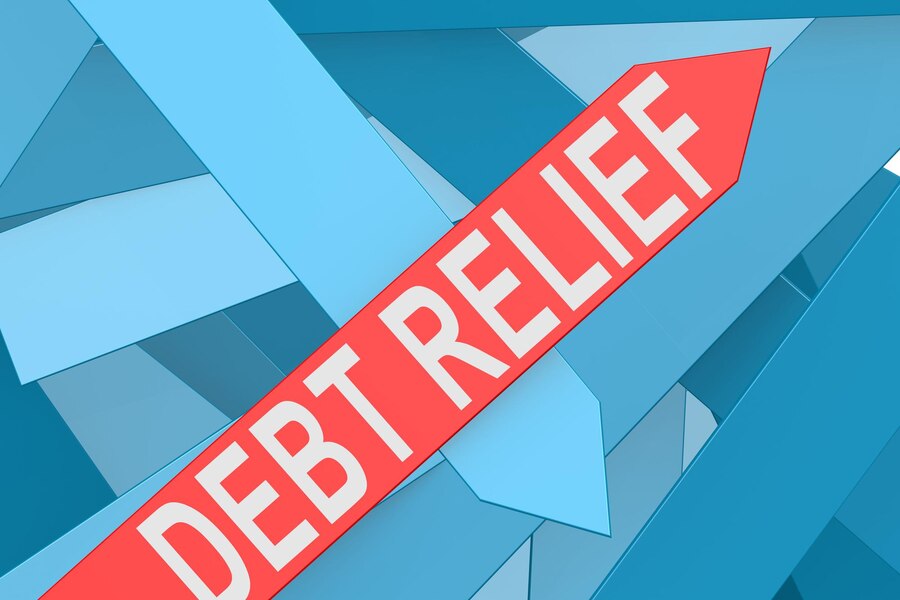Is the burden of debt dragging you down? Are the mounting pressures becoming insurmountable as interest rates continue to soar? Before contemplating the drastic measure of filing for bankruptcy, consider an alternative path. In Milford, New Hampshire, reputable debt settlement companies can offer viable solutions to ease your financial strain.
Exploring Debt Settlement Options in Milford, New Hampshire
When faced with overwhelming debt, the prospect of bankruptcy may seem tempting, but it’s crucial to explore alternative avenues. Connect with a trusted debt settlement company in Milford, New Hampshire, to understand their offerings and the potential relief they can provide.
Why Choose Debt Settlement Over Bankruptcy?
1. Credit Profile Impact
Opting for debt settlement has a shorter-lasting impact on your credit profile compared to bankruptcy. While a debt settlement program may affect your credit for seven years, a bankruptcy proceeding can linger for a decade or even longer. Protecting your creditworthiness is paramount when considering your financial future.
2. Expedited Debt Repayment
Debt settlement offers a quicker path to debt resolution, typically taking three to four years. In some cases, a proficient debt settlement company can achieve debt clearance in under a year, outpacing other methods that may stretch over five years. By consolidating debts, these programs often secure lower monthly payments and reduced interest rates.
3. Credit Card Retention
In certain scenarios, you may retain the use of your credit cards during a debt settlement process. However, it’s essential to weigh the implications carefully, ensuring the process aligns with your overall financial goals.
4. Simplified Debt Management
Upon successful settlement, managing your debt becomes more straightforward. Say goodbye to juggling multiple payments and varying interest rates. With a single monthly installment, you can regain control of your financial obligations.
Evaluating the Drawbacks of Debt Settlement Services
While debt settlement can be a viable solution, it’s crucial to consider potential drawbacks:
1. Risky Collateral
Securing a debt settlement loan may require collateral, often in the form of your home or car. Be aware of the risks involved, as any unforeseen circumstances or emergencies could lead to the forfeiture of your collateral.
2. Hidden Fees
Exercise caution regarding hidden fees. Legitimate charges typically include application fees and service fees, along with a percentage (usually 10-25%) of the settled debt amount. Beware of overcharging and carefully review the terms before committing to an agreement.
3. Scam Awareness
Dealing with a debt settlement agency demands diligence. Some unscrupulous entities may exploit individuals with exorbitant upfront fees or concealed charges. Research thoroughly, consulting your state’s Attorney General, local consumer protection agencies, and the Better Business Bureau (BBB) for insights.
4. Tax Implications
Be prepared for potential tax implications associated with settled debt. Creditors may issue a 1099-C (cancellation of debt tax notice), indicating the forgiven debt amount, which is taxable income. Consult a tax professional for guidance on navigating this aspect of debt settlement.
Understanding the Risks
Debt settlement comes with inherent risks that demand careful consideration:
1. Impact on Credit Score
During the buildup of funds in an escrow account for debt settlement, your accounts may be considered delinquent, adversely affecting your credit score for seven years.
2. Continued Accrual of Charges
While working towards settlement, penalties, interest, late fees, and additional charges from creditors will continue to accumulate. Acknowledge and plan for the potential increase in your overall debt balance.
3. Adherence to Laws
Settlement agencies cannot charge upfront fees according to the law. However, once an individual debt is settled, the agreed-upon method, either a percentage of the initial debt or the eliminated amount, must be paid.
In conclusion, debt settlement should be viewed as a last resort due to its inherent uncertainties. Seek professional advice, thoroughly research potential agencies, and carefully weigh the risks and benefits before embarking on this financial journey. Remember, informed decisions lead to financial empowerment.

